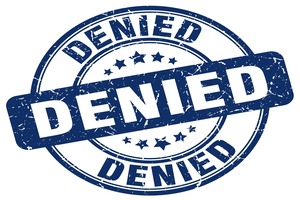Chapter 13 bankruptcy is a great way to get your financial life back in order without putting your most valuable assets at risk.
This type of bankruptcy allows you to remain in your home and exempt other assets, while getting control of your credit problems. You commit to a repayment plan lasting three to five years and based on how much you can afford to pay.
But what happens if things change during the course of those years and you are no longer able to afford your payments under the Chapter 13 plan?
Chapter 13 Bankruptcy is a Longer Term Solution
Many people assume filing for bankruptcy means you have no income and aren’t able to pay any of your debts, which is often the case in Chapter 7 bankruptcy. Chapter 7 filers have their debts discharged and creditors no longer have any legal authority to collect on their debts. The entire process usually lasts about six months.
Chapter 13, on the other hand, is a long-term process.
The benefit of Chapter 13 is that you’re able to protect many of the assets you’d lose in a Chapter 7 bankruptcy. However, you must commit to making monthly payments over the course of three to five years. This type of bankruptcy is sometimes called “wage earners bankruptcy” because it requires you have an income that can be used to make the required payments.
To learn more about how Chapter 13 repayment plans are calculated, check out this article from The Balance.
Of course, three years or five years is a long time. A lot can happen and if you lose your job or encounter an unpredicted medical or other emergency expense, you might not be able to afford your Chapter 13 payments any more.
What does this mean?
For starters, it might not mean you have to give up your Chapter 13 bankruptcy.
It is possible to make changes to your payment obligations. They can be increased or decreased based on your earnings. They can be extended from the original amount of time up to 60 months, so if you committed to a three year plan and can no longer afford those payments, you can extend it to the five year repayment arrangement.
You might even have the option of suspending your payments temporarily, depending on your specific situation.
You also have the option of surrendering property. If you exempted certain property in your Chapter 13 plan, and now that your situation has changed, you might have the option of surrendering the property.
Converting a Chapter 13 Bankruptcy to a Chapter 7
Another option is to convert your existing Chapter 13 bankruptcy to a Chapter 7 plan. This means giving up the benefits provided in Chapter 13, but if your financial situation drastically changed, this might be your best option, regardless of what you’d sacrifice.
Other options for dealing with a change in income during a Chapter 13 bankruptcy include dismissal of your bankruptcy or requesting a hardship discharge. Every case is different, so it’s important to speak to your bankruptcy attorney about your situation and use the information he or she provides to make the decision that best suits you.
For more information or to discuss what you can do if your financial situation changes and you are no longer able to afford Chapter 13 payments, contact the Law Office of Robert M. Geller at 813.254.5696.



























![Signs That You May Need to File Bankruptcy [Infographic]](https://djml3wkzi26ea.cloudfront.net/wp-content/uploads/2021/01/signs-chap7-v-chap13.jpg)
![How To File for Bankruptcy [Infographic]](https://djml3wkzi26ea.cloudfront.net/wp-content/uploads/2020/07/bankruptcy-steps-infographic-web.jpg)










